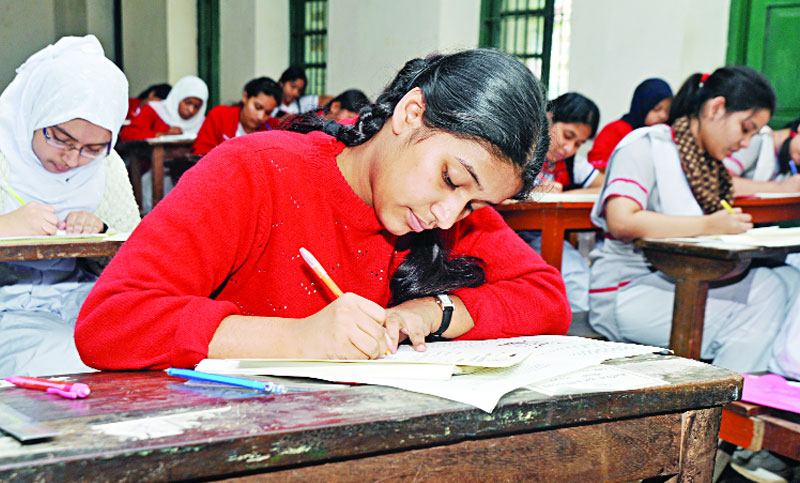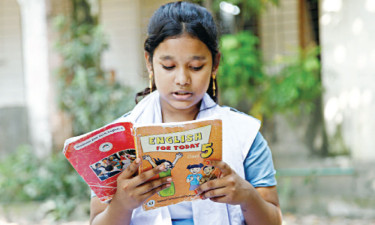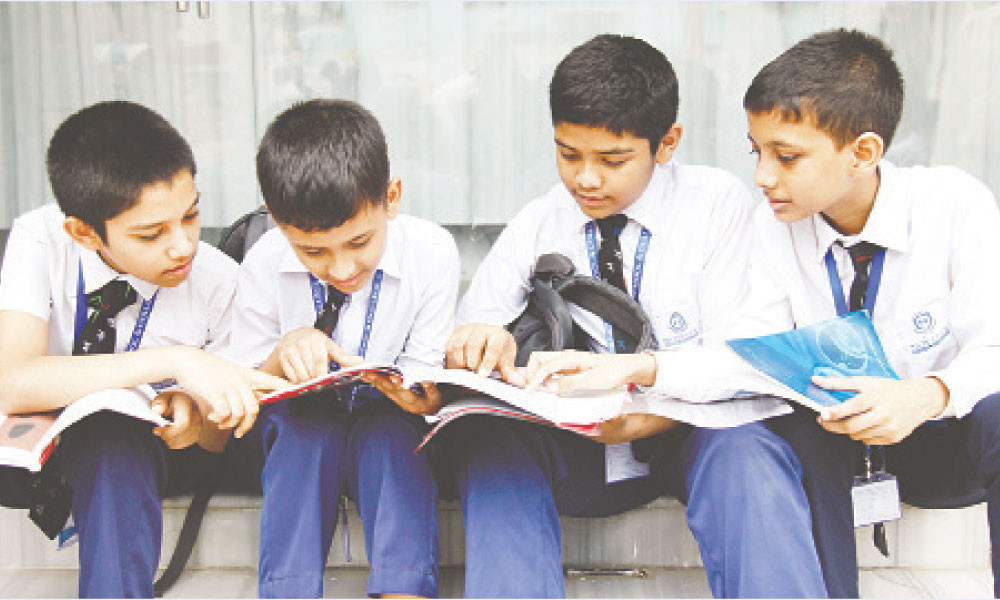Preposition
Complete the text with suitable prepositions
1. Nowadays street accident has become a regular affair. Last week I saw an accident. It was 10 a.m. and I was walking (a) — the Hospital Road, Tala. Satkhira to go to my college. A girl was going the same way. She was a few hands ahead (b) — me. Suddenly she started crossing the road. When she was (c) — the middle of the road, all (d) — a sudden a micro bus came (e) — and knocked her (f) —. The micro ran (g) — her. She shouted and fell (h) — seconds. Meanwhile, people gathered round her. She was taken (i) — hospital but doctor declared her dead. I was really shocked (j) — that incident.
2. (a) — the past, education in Bangladesh was primarily an English-controlled, upper class affair (b) — all courses given (c) — English and very little being done (d) — the common people. The Bangladesh Education Board has taken steps (e) — leave such practices (f) — the past, and is looking forward (g) — education as a way (h) — provide the nation (i) — a brighter future. Bangladesh fully conforms (j) — the Education For All (EFA) objectives and the Millennium Development Goals and international declarations.
3. May Day is the day (a) — establishing the legal right (b) — the workers (c) — the world. This is memorable (d) — the owners of the world (e) — their defeat (f) — the working class people. But it is (g) — the same time a happy day for the working class people for their triumph (h) — the owners regarding the rights as workers. In fact, May Day is a milestone (i) — snatching away, the rights (j) — the blood sucking owners.
4. A sunset (a) — the side (b) — a seashore or (c) — a river is very charming. (d) — the end (e) — the day the sun gradually goes down (f) — the western horizon. The western sky is coloured (g) — a red colour. The rays (h) — the sun is soft and soothing. The tops of the trees become red (i) — the rays (j) — the setting sun.
5. Trees are very useful (a) — man. They are linked (b) — our existence. They protect the top soi1 (c) — getting washed away (d) — rain water and floods. We can see trees being grown (e) — the road sides, (f) — the parks and gardens. They add beauty (g) — our lives. They provide us (h) — food, wood, shade and so on. The take (i) — carbon dioxide and produce oxygen. So, we should take care (j) — trees.
6. Two friends had a deep affection (a) — each other and a firm intimacy (b) — one another. Each was fond (c) — the other and each was devoted (d) — another. But one day this friendship proved false when they were passing (e) — a forest and suddenly encountered a big bear. The cleverer friend, without caring (f) — the companion, ran away and climbed up a tree. The other friend, who did not know how to climb a tree, could not depend (g) — anything or anyone. Being afraid (h) — the bear, he lay down on the ground as if he were dead. While lying on, he thought (i) — himself that loneliness was preferable (j) — bad companion.
7. Time and tide wait (a) — none. A stitch (b) — time saves nine. Those are the two very well known proverbs (c) — the significance of time. Some people don’t care (d) — anything. They put (e) — a job for tomorrow though they are not sure whether tomorrow will come. (f) — this way, they cannot finish a work when they need it. Then they say, “Alas! If we did not fight shy (g) — our jobs when we had a lot of time, we could be successful.” So (h) — become successful (i) — life we have to realize the importance (j) — utilizing time.
8. The secret of success (a) — life lies (b) — the proper use (c) — time. Many (d) — us are apt (e) — forget that every moment is precious. Life is short but art is long. Time is uncertain. We do not know when we shall be called (f) — from this world (g) — death. During this limited and uncertain period, we have (h) — build (i) — our body and mind and apply them (j) — useful activities.
9. Health is wealth. No one is able to keep good health (a) — physical exercise. Games and sports are the finest kind (b) — exercise. Exhilarating and entertaining games and popular (c) — all. There are a lot of merits (d) — sports. It helps the limbs and muscles (e) — the body to be strong and tied. It retains the physical fitness as a result (f) — moving, walking and running. It also helps man to be free (g) — anxiety and tension. It helps (h) — building up personality. It nurtures international fraternity and make country known (i) — the rest of the world. A sportsman can earn a lot (j) — money. So, all of us should think of the usefulness of sports.
10. One day the Czar of Russia was walking alone (a) — the busy streets of Moscow. He took no one to guard (b) — him. He went out to know (c) — his people. Suddenly, the Czar saw a tired man He was dragging a handcart (d) — the snowy street. There was a coffin (e) — it (f) — burial. The Czar came to know that it was the dead body (g) — a poor soldier. He was sad to think that the brave soldier had laid down his life (h) — the sake (i) — the country. So, he shouldn’t be buried unhonoured. So, he followed the dead body (j) — the grave.
Answer
1. (a) along; (b) of; (c) in; (d) of; (e) up; (f) down; (g) over; (h) in; (i) to; (j) at.
2. (a) In; (b) for; (c) in; (d) for; (e) to; (f) of; (g) to; (h) to; (i) with: (j) to.
3. (a) for; (b) of; (c) in/around; (d) to; (e) for; (f) to; (g) at; (h) over; (i) in; (j) from.
4. (a) from; (b) of; (c) by; (d) At; (e) of; (f) on; (g) with; (h) of; (i) with; (j) of.
5. (a) to; (b) to; (c) from; (d) by/with; (e) by; (f) in; (g) to; (h) with; (i) in; (j) of.
6. (a) for; (b) with; (c) of; (d) to; (e) through; (f) for; (g) on; (h) of; (i) to; (j) to.
7. (a) for; (b) in; (c) on/about; (d) about; (e) off; (f) In; (g) of; (h) to; (i) in; (j) of.
8. (a) in; (b) in; (c) of; (d) of; (e) to; (f) away; (g) by; (h) to; (i) up; (j) to.
9. (a) without; (b) of; (c) with; (d) about/of; (e) of; (f) of; (g) from; (h) in; (i) to; (j) of.
10. (a) along; (b) no preposition; (c) about; (d) on; (e) on; a) for; (g) of; (h) for; (i) of; (j) towards/to.
।






